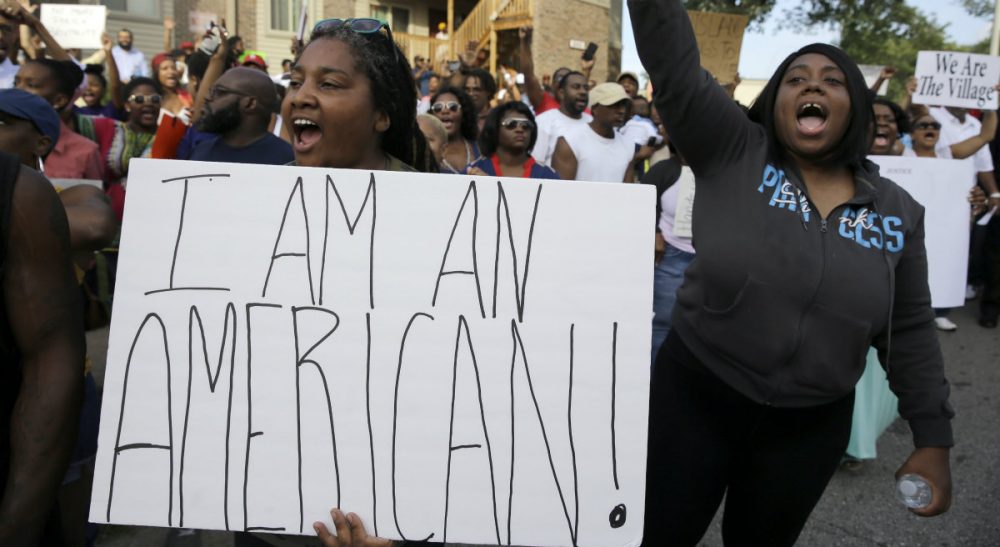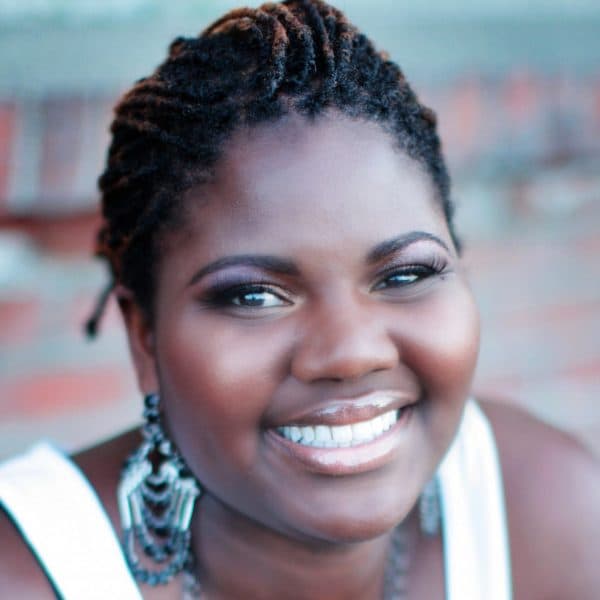Advertisement
Fruitvale To Ferguson: Understanding The Language Of Rage And Mourning

In 1966, Martin Luther King Jr. stood before an audience of young black Chicagoans to make a speech about “The Other America.” As he approached the podium, he was booed and heckled. Yes, Martin Luther King Jr. was booed by young black Americans. Confused, he asked, “Why would they boo one so close to them?” It did not take long for him to answer his own question. He realized that the audience had booed him because he and others had been preaching to them for 12 years that in a “not too distant day they would have freedom for all, here and now...but the dream [had] turned into a frustrating nightmare.”
Black parents are too often required to prove not only that their child was harmless, but that he was human and worthy of justice.
Fast forward almost half a century to President Obama’s press conference on Ferguson, Mo. My first inclination was to boo, as well. Something rang terribly hollow when Obama concluded his remarks with, “let’s remember that we’re all part of one American family.”
In the past two years, America has seen the much publicized trivial killings of young black men. Trivial, because, apparently, wearing at hoodie a night in the rain, playing loud music, selling loose cigarettes on the street, or just walking down the street can land a young black man in a body bag. It is no surprise, then, that with news of Michael Brown’s death in Ferguson, mourning erupted into violence.
Unfortunately, with each tragedy we seem to hear the same language. People attempting to sound impartial make statements such as “no one can know the whole truth,” or, “we may never have the full story.” Such statements dismiss the possibility of truth and invalidate legitimate rage and grief. This benign language allows us to delay, forget or even forfeit the justice so many Americans desire and deserve.
Meanwhile, parents of the deceased must use a language of appeal to highlight the wonderful qualities of their slain sons: “College-bound.” “Gentle giant.” “Good boy.” Black parents are too often required to prove not only that their child was harmless, but that he was human and worthy of justice.
Is this America? The sight of Ferguson police armed with military gear, tear gas and police dogs has many asking that question. The answer is simple, and it is old: yes. The same extreme response met any slave who was even rumored to be in rebellion. Think Gabriel Prosser or Denmark Vesey, alleged leaders of attempted slave rebellions that had political effects on black resistance and activism in the early 19th century. Throughout the black diaspora, think Toussaint Louverture, one of the leaders of the Haitian Revolution that helped bring down Napoleon’s dream of an empire. So while America may have been appalled by the police response, black America wasn’t shocked.
King was eloquent explaining in his speech that among the oppressed, “a riot is the language of the unheard.” King believed the militancy and cynicism in young black Americans represented the country’s failure to address and implement basic civil rights laws. King explained that, for black Americans, “This other America has a daily ugliness about it that transforms the buoyancy of hope into the fatigue of despair…the skills and talents of black children become stifled in a world that has prepared no meaningful place for them.”
...while America may have been appalled by the police response, black America wasn’t shocked.
King argued that America has failed to hear many things, but most important, it has become deaf to those with the least amount of access to change the system. For King, white society was “more concerned about tranquility and the status quo than about justice, equality and humanity.” Indeed, the quickest way to dismiss a tragedy such as Michael Brown is to become deaf to the real concerns and or place more attention on a robbery than a shooting.
Throughout history, summer has been the season of racial and civil unrest (Red Summer, 1919; Long Hot Summer, 1967). How is this summer or last summer any different? When will we learn? When will we listen? Long before social media existed, Martinican poet and activist Aimé Césaire wrote, “Life is not a spectacle …A man screaming is not a dancing bear.”
Black pain is not a circus act. Recent instances, from Fruitvale to Ferguson, have brought into the foreground how difficult it is to be heard even when screaming, “Don’t shoot!” Perhaps we might all understand the language of rage and mourning just a little bit better if we stopped and listened.
Related:
